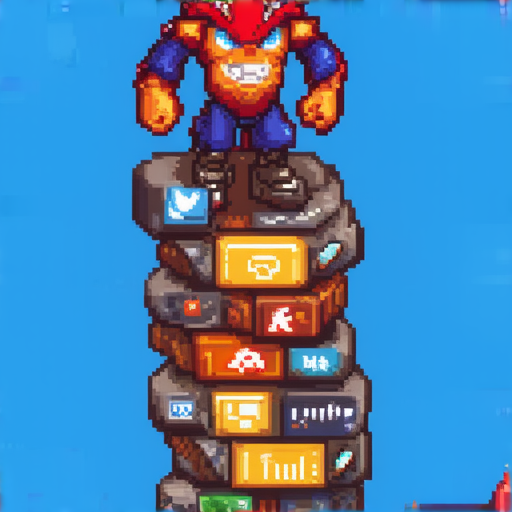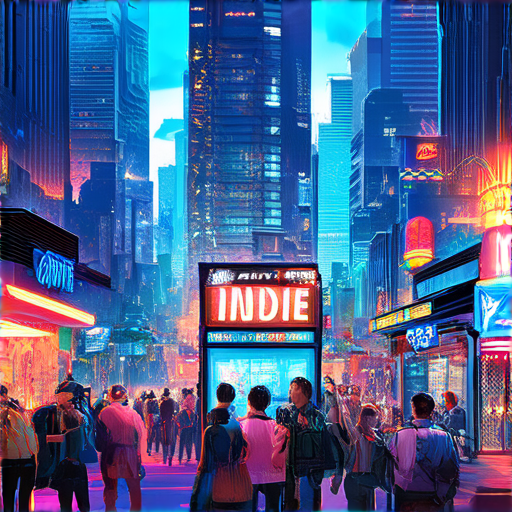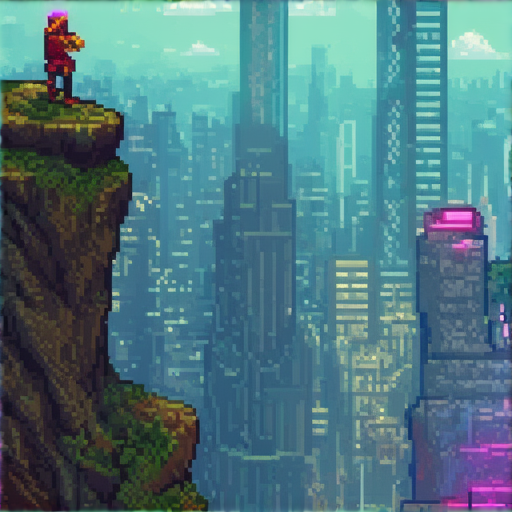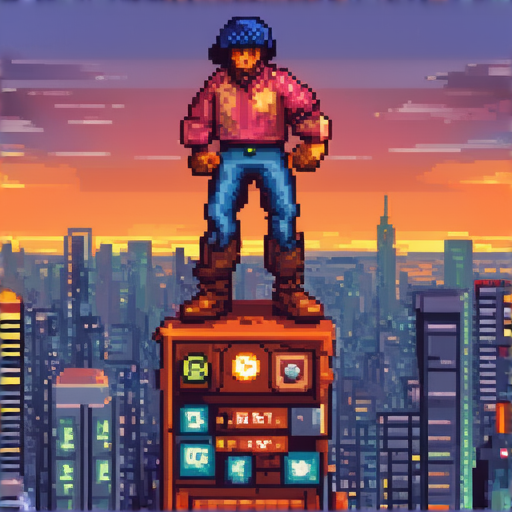In today’s digital landscape, independent game developers face stiff competition in getting their creations noticed by potential players. With millions of games available across various platforms, standing out from the crowd requires a well-crafted strategy that leverages the power of social media. By mastering indie game social media marketing strategies, developers can increase their online visibility, engage with their target audience, and ultimately drive sales.

Getting Your Indie Game Noticed
As an indie game developer, getting your game noticed can be a daunting task.
-
Create a strong online presence through social media platforms like Twitter, Facebook, and Instagram to connect with potential players and share updates about your game.
-
Reach out to gaming influencers and content creators who have a large following in your target audience and ask if they’d be interested in trying out your game.
-
Optimize your game’s visibility on digital storefronts like Steam by using relevant keywords in your game’s title, description, and tags.
-
Develop a content marketing strategy that includes blog posts, videos, and podcasts to showcase your game’s unique features and story.
-
Engage with your community by responding to feedback, hosting AMAs, and sharing behind-the-scenes content to build a loyal fan base.
-
Collaborate with other indie developers to co-promote each other’s games and reach a wider audience.
-
Utilize paid advertising options like Google Ads and Facebook Ads to target specific demographics and increase your game’s visibility.
-
Participate in gaming events and conferences to network with industry professionals, showcase your game, and learn about the latest trends and technologies.
-
Offer demos or early access to your game to gather feedback and build hype among potential players.
-
Monitor your game’s analytics to track its performance, identify areas for improvement, and adjust your marketing strategy accordingly.
-
Stay up-to-date with the latest developments in the gaming industry by attending webinars, reading industry blogs, and following gaming news outlets.
Competitor Analysis
When analyzing your competitors, consider factors like their game mechanics, art style, and marketing strategies.
-
Identify gaps in the market that your game can fill and highlight these differences in your marketing materials.
-
Analyze your competitors’ strengths and weaknesses to inform your own game development and marketing decisions.
-
Stay aware of your competitors’ moves and adjust your strategy accordingly to stay ahead in the market.
Conclusion
Getting your indie game noticed requires a combination of creative marketing strategies, community engagement, and analytical thinking.
By following these tips and staying adaptable, you can increase your game’s visibility, attract a loyal player base, and ultimately succeed in the competitive world of indie game development.
Choosing the Best Social Media Platform for Indie Developers
As an indie developer, promoting your game can be challenging, especially with numerous social media platforms available.
-
Instagram
Instagram is an excellent choice for showcasing your game’s visuals, with its focus on high-quality images and videos.
-
TikTok
TikTok offers a unique opportunity to engage with your audience through short-form videos, making it perfect for sharing behind-the-scenes content and sneak peeks.
-
Twitter
Twitter is ideal for real-time engagement, allowing you to share updates, interact with fans, and participate in gaming communities.
-
Discord
Discord provides a dedicated space for your community to connect, discuss your game, and receive feedback.
-
YouTube
YouTube is a great platform for creating in-depth content, such as walkthroughs, tutorials, and Let’s Play videos.
When choosing the best social media platform for your indie game, consider your target audience, content style, and goals.
-
Identify Your Target Audience
Determine who your game is for and which platforms they are most active on.
-
Create High-Quality Content
Develop visually appealing graphics, engaging videos, and informative posts that resonate with your audience.
-
Engage with Your Community
Respond to comments, messages, and reviews to foster a loyal fan base.
-
Analyze Performance
Track your social media metrics to understand what works and adjust your strategy accordingly.
By selecting the right social media platform and creating engaging content, you can effectively promote your indie game and reach a wider audience.

Effective Ways to Promote Indie Game
As an indie game developer, I’ve found that there are several effective ways to promote my game beyond paying popular YouTubers.
-
Social Media Marketing
-
Community Building
-
Influencer Marketing
-
Content Marketing
-
Email Marketing
-
PR and Outreach
-
Optimize Your Website
-
Run Contests and Giveaways
-
Utilize User-Generated Content
Social media platforms like Twitter, Facebook, Instagram, and TikTok can be great for promoting your indie game. You can share development updates, screenshots, and trailers, and interact with your potential players. Paid advertising on these platforms can also help you reach a larger audience.
Becoming part of online communities like Reddit’s r/gamedev and r/indiegaming can help you connect with potential players and get feedback on your game. You can also participate in online forums and discussions related to your game’s genre.
Partnering with influencers who have a genuine interest in your game’s genre can help you reach a targeted audience. Look for influencers who have a strong following and are active in the gaming community.
Creating high-quality content like blog posts, videos, and podcasts can help establish your game as an authority in its genre. Share your expertise and showcase your game’s unique features.
Building an email list of subscribers who are interested in your game can help you stay in touch with them and keep them updated on your game’s progress. Use email marketing campaigns to promote your game and offer exclusive content to your subscribers.
Reaching out to gaming media outlets, bloggers, and reviewers can help you get your game featured in publications and reviews. Craft a press kit that includes high-quality images, trailers, and press releases to make it easy for journalists to cover your game.
Making sure your website is optimized for search engines can help you attract organic traffic and increase visibility for your game. Use keywords related to your game’s genre and include meta descriptions and titles that accurately reflect your game’s content.
Hosting contests and giveaways can help generate buzz around your game and encourage people to share it with their friends. Partner with other indie game developers or gaming influencers to co-promote each other’s games.
Encouraging players to create their own content based on your game can help create a sense of community and ownership. Share user-generated content on social media and give credit to the creators.
By implementing these strategies, you can effectively promote your indie game and reach a wider audience.

How Indie Games Get Popular
As an indie game developer, getting your game noticed can be challenging, but there are several ways to increase its popularity.
-
Develop a Unique Game Concept
-
Build a Strong Online Presence
-
Network and Collaborate with Other Developers
-
Optimize Your Game for Discoverability
-
Run Effective Marketing Campaigns
-
Engage with Your Community and Gather Feedback
-
Publish on Relevant Platforms
-
Monitor Analytics and Adjust Strategies
Create a game that stands out from the crowd by introducing a fresh idea, unique gameplay mechanics, or an innovative art style.
Establish a professional website, social media accounts, and engage with your audience through regular updates, behind-the-scenes content, and community interactions.
Attend gaming events, join online communities, and collaborate with other developers to learn from their experiences, share knowledge, and gain exposure to new audiences.
Use keywords, tags, and descriptions effectively on platforms like Steam, GOG, and the App Store to increase visibility in search results.
Utilize social media advertising, influencer partnerships, and email marketing to reach a wider audience and drive traffic to your game’s website.
Listen to player feedback, respond to comments, and incorporate suggestions into future updates to build a loyal fan base and encourage word-of-mouth promotion.
Distribute your game on popular platforms like PC, consoles, and mobile devices to maximize visibility and accessibility.
Analyze your game’s performance using tools like Google Analytics, track player behavior, and adjust your marketing strategies accordingly to optimize results.
By implementing these strategies, indie game developers can increase their chances of success and get their games noticed by a wider audience.
The Most Profitable Indie Game Genre
As an indie game developer, understanding which genres yield the highest profits can significantly impact your project’s success.
-
Strategy Games
Strategy games have consistently been among the top-grossing indie game genres, thanks to their engaging gameplay mechanics and high replayability.
- Tactical games like XCOM and Into the Breach have achieved significant commercial success, demonstrating the potential for strategy games to attract large audiences.
- Real-time strategy games like Starcraft and Warcraft have also performed well, showcasing the enduring popularity of this genre.
-
Action-Adventure Games
Action-adventure games offer a unique blend of exploration, puzzle-solving, and combat, making them highly appealing to players.
- Games like Dark Souls and Sekiro have gained massive followings, highlighting the profitability of challenging yet rewarding experiences.
- The success of titles like The Legend of Zelda and Assassin’s Creed demonstrates the potential for action-adventure games to reach broad audiences.
-
RPGs (Role-Playing Games)
RPGs have a dedicated fan base and can generate substantial revenue through sales and microtransactions.
- Games like Divinity: Original Sin 2 and Pillars of Eternity have received critical acclaim and commercial success, illustrating the potential for RPGs to attract a loyal player base.
- The success of titles like The Elder Scrolls V: Skyrim and Dragon Age: Inquisition showcases the profitability of open-world RPGs.
-
Fighting Games
Fighting games have a strong competitive scene and can generate revenue through esports tournaments and streaming.
- Games like Street Fighter V and Super Smash Bros. Ultimate have maintained a strong player base and generated significant revenue through competitive play.
- The success of titles like Mortal Kombat and Tekken demonstrates the potential for fighting games to appeal to a broad audience.
While these genres have shown promise, it’s essential to remember that success ultimately depends on factors like game quality, marketing, and target audience.
By understanding the market and creating engaging experiences, indie game developers can increase their chances of achieving commercial success.

Success Rate of Indie Games
The success rate of indie games can vary greatly depending on several factors such as genre, marketing strategy, and player engagement.
- Revenue Threshold: More than 50% of indie games fail to surpass $4,000 in revenue, while 23% do not exceed $10,000 in lifetime earnings.
- Top-Earning Games: Successful games are considered those that exceed $50,000 in revenue, with only 13% of top indie games achieving significant earnings.
- Indie Dev Games Insights: As a resource hub for indie game developers, we offer tutorials, reviews, and tips focused on game creation, empowering game creators with insights on development tools, design techniques, marketing strategies, and community stories to enhance their projects.
- Competitor Analysis: While there are many competitors in the indie game development space, our focus remains on providing valuable resources and support to our community, ensuring that our content remains informative and engaging.
- SEO Best Practices: We strive to maintain a natural flow and readability in our content, incorporating relevant links and keywords to enhance user experience and SEO performance.
- Keyword Optimization: By focusing on strategic keywords and related searches, we aim to improve our content’s visibility and ranking in search engine results.
- Content Quality: Our primary goal is to provide high-quality, informative content that adds value to our audience, while also meeting SEO best practices and guidelines.
- Community Engagement: We encourage community interaction and feedback, using this input to refine and improve our content, ensuring that it remains relevant and engaging.
- Industry Trends: Staying up-to-date with the latest industry trends and developments allows us to provide timely and relevant information to our audience, solidifying our position as a trusted resource in the indie game development community.
- Authoritative Sources: We draw upon a variety of authoritative sources, including academic research, industry blogs, and government websites, to ensure the accuracy and credibility of our content.
- Practical Guidance: Where possible, we provide actionable advice and practical guidance to help indie game developers overcome common challenges and achieve success in the industry.
- User Experience: Our content is designed to be easy to read and understand, with a focus on providing valuable insights and information that enhances the user experience.
- SEO Performance: By following best practices and guidelines, we aim to improve our content’s SEO performance, increasing its visibility and ranking in search engine results.
- Ranking Goals: Our ultimate goal is to have our content rank #1 in Google search results, providing value to users and establishing ourselves as a leading authority in the indie game development community.




0 Comments